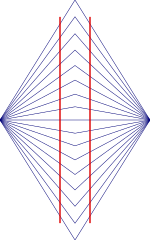Wilhelm Maximilian Wundt (/wʊnt/; German: [vʊnt]; 16 August 1832 – 31 August 1920) was a German physiologist, philosopher, and professor, one of the fathers...
123 KB (16,045 words) - 20:45, 1 November 2024
Instinct (section Wilhelm Wundt)
possess could be achieved through the evolution of unconscious traits. Wilhelm Wundt (1832–1920) is known for founding the first psychology laboratory, which...
32 KB (3,885 words) - 15:07, 21 October 2024
was a student of Wilhelm Wundt at the University of Leipzig, Titchener's ideas on how the mind worked were heavily influenced by Wundt's theory of voluntarism...
16 KB (1,863 words) - 17:18, 5 May 2024
Introspection (section Wundt)
testimony as a source of knowledge. It has often been claimed that Wilhelm Wundt, the father of experimental psychology, was the first to adopt introspection...
29 KB (3,380 words) - 11:51, 3 August 2024
Functional psychology (section Wilhelm Wundt)
cognitive psychology. Later in his life, Dewey neglected to mention Wilhelm Wundt, a German philosopher and psychologist, as an influence towards his...
16 KB (2,014 words) - 07:28, 2 November 2024
Experimental psychology (section Wilhelm Wundt)
discipline in the 19th century when Wilhelm Wundt introduced a mathematical and experimental approach to the field. Wundt founded the first psychology laboratory...
51 KB (6,574 words) - 16:51, 5 October 2024
The Wundt illusion is an optical illusion that was first described by the German psychologist Wilhelm Wundt in the 19th century. The two red vertical...
2 KB (183 words) - 03:58, 29 April 2024
Idea (section Wilhelm Wundt)
the premise upon which Goethe made his natural-scientific observations. Wundt widens the term from Kant's usage to include conscious representation of...
37 KB (4,687 words) - 09:24, 31 October 2024
1867 – 3 August 1927) was an English psychologist who studied under Wilhelm Wundt for several years. Titchener is best known for creating his version...
20 KB (2,295 words) - 01:28, 16 August 2024
influence of Gottfried Wilhelm Leibniz on the Psychology, Philosophy, and Ethics of Wilhelm Wundt. Fahrenberg, Jochen, 2020. Wilhelm Wundt (1832–1920). Introduction...
152 KB (18,847 words) - 11:56, 23 October 2024






